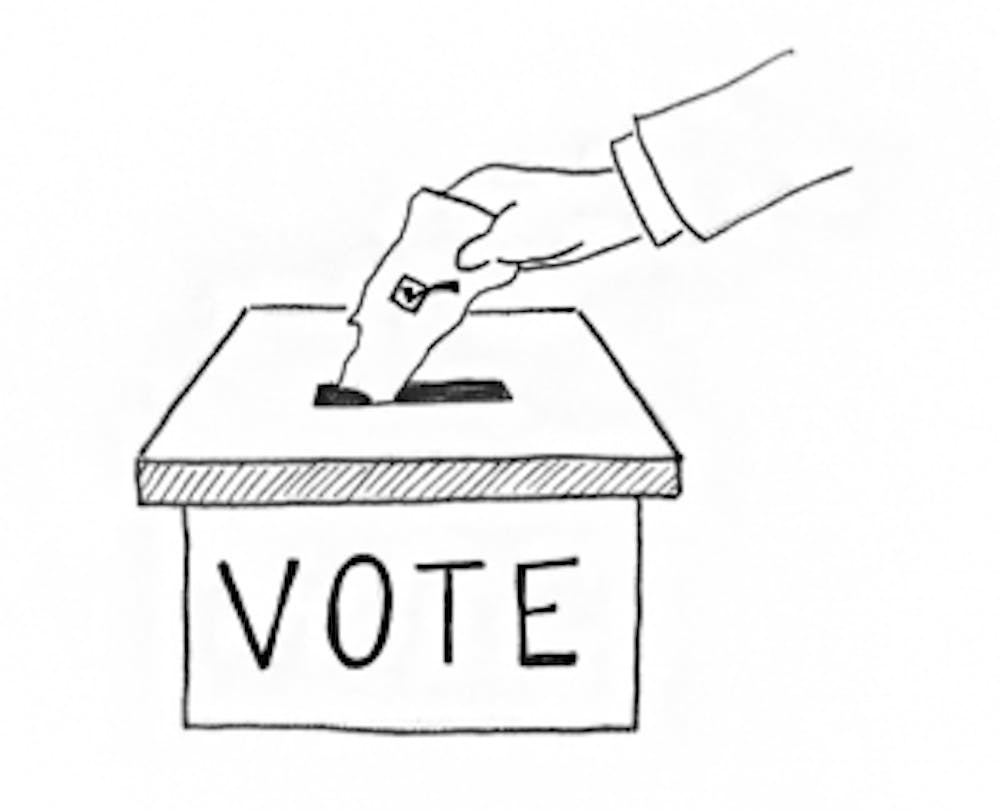Not all college students have an easy time voting in their school’s state. During recent election cycles, politicians in New Hampshire, Texas and Florida made conscious efforts to suppress the student vote — everything from enacting voter-suppression laws to shutting down polling stations convenient for college-aged voters.
In Vermont, we’re lucky. Relatively speaking, students choosing to participate in local politics face few roadblocks to civic engagement. Town halls and elections are readily accessible. In fact, Vermont’s same-day online registration allows any Middlebury student with a U.S. passport and proof of residence to cast a ballot with virtually no prior planning. With the March 3 elections approaching fast, this ability assumes immediate importance.
Next week, we have two important political days in rapid succession: March 2 and 3. On March 2, communities come together on Vermont Town Meeting Day to elect local officials, approve an annual budget and discuss town issues. March 3 marks Super Tuesday, when 14 states and one territory hold their nomination contests, collectively determining a third of the delegates for the Democratic National Convention over the course of a single day.
In light of these fast-approaching days, we’re calling for all Middlebury students to vote, and to do so consciously, wherever you do it.
Many students feel strongly about sending absentee ballots back home. Students from swing states, for instance, might feel their votes matter more there. Others cast their votes in attempts to either oust or maintain current leadership. And many may simply choose to vote in the state they grew up in, and continue to consider “home.”
And yet there are compelling reasons to vote in the Green Mountain State too, beyond logistical voting accessibility. The state’s scale — with only 600,000 residents — and long tradition of split-ticket voting make Vermont idyllic to begin one’s political engagement. Vermont’s size places emphasis on local politics and town hall meetings that have open doors to students.
Politically, it is well known that residents of Vermont tend to “vote their conscience” as opposed to along party lines. As the rest of the country has become increasingly polarized, Vermont has managed to maintain common ground between parties, as voters regularly swing from Democrat to Republican depending on any given candidates’ platform. The lack of political divide allows students to think critically about the issues as opposed to being swept in the tide of blue or red.
Still, voting in Vermont shouldn’t be taken lightly, and votes on Vermont-related issues should be cast with intentional research and consideration. While ballot questions about flood-resilience measures or funding for the Champlain Valley Office of Economic Opportunity might not directly impact the lives of students on Middlebury’s campus, they represent vital issues for the surrounding community.
Anyone who can vote should vote, regardless of location. For many Middlebury students, that entails mailing a pre-requested absentee ballot back to their home state. For others, that means taking advantage of same-day registration in Vermont, and showing up to the Middlebury Recreation Center between 7 a.m. and 7 p.m. on March 3. In either case, however, we ask that students to engage purposefully with the issues behind their ballot.
If you are voting in Middlebury next week, check out our guide here.
When voting in Vermont, don’t half-ass it

Comments


